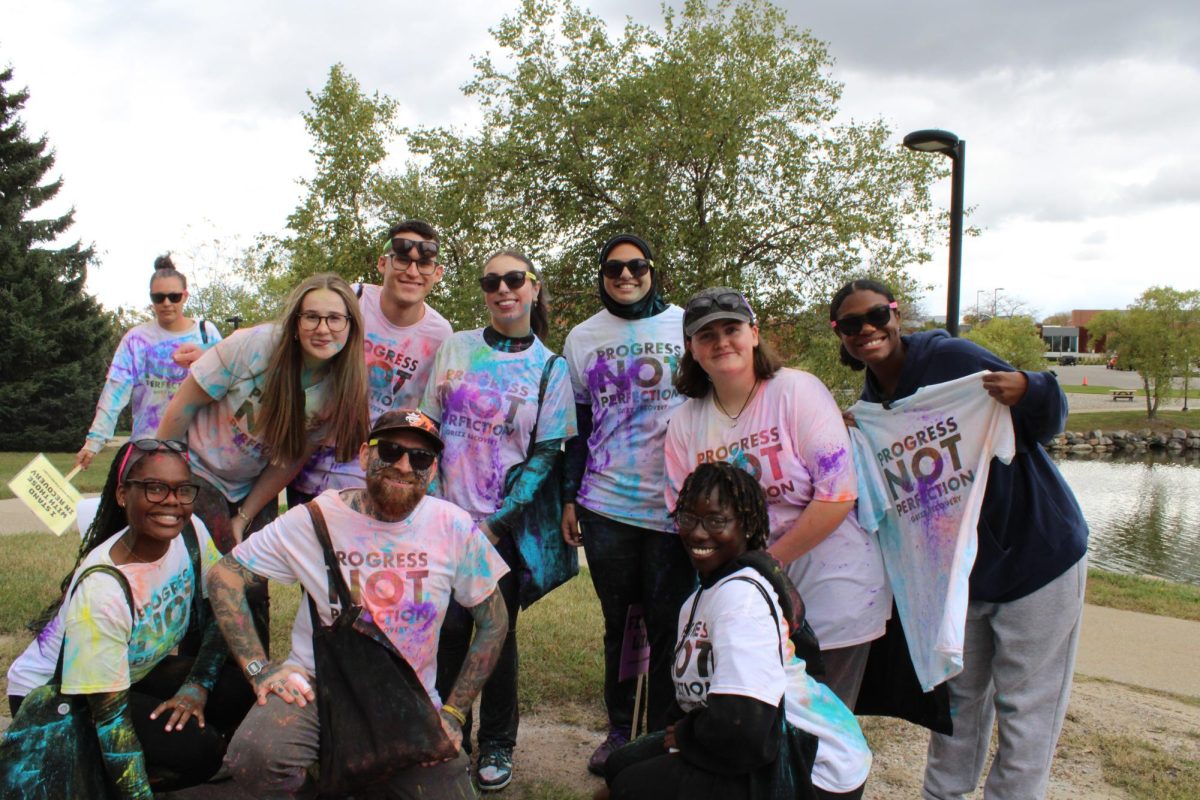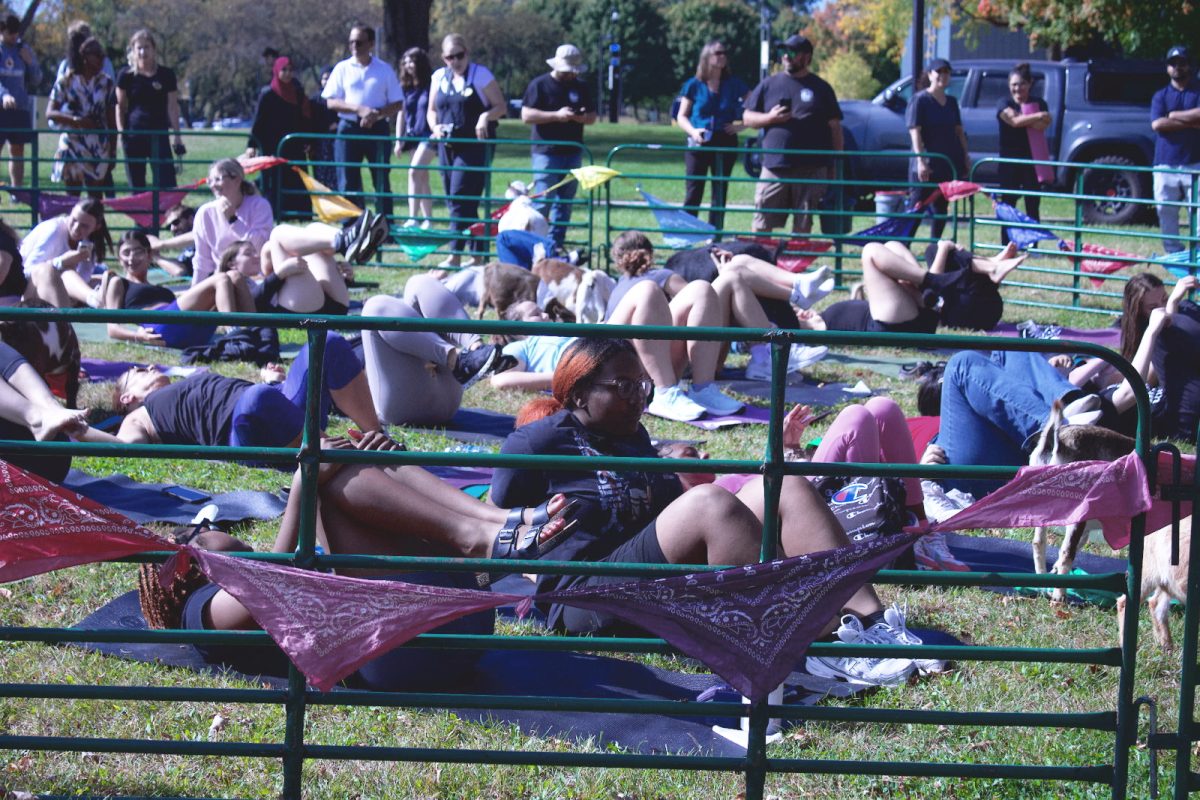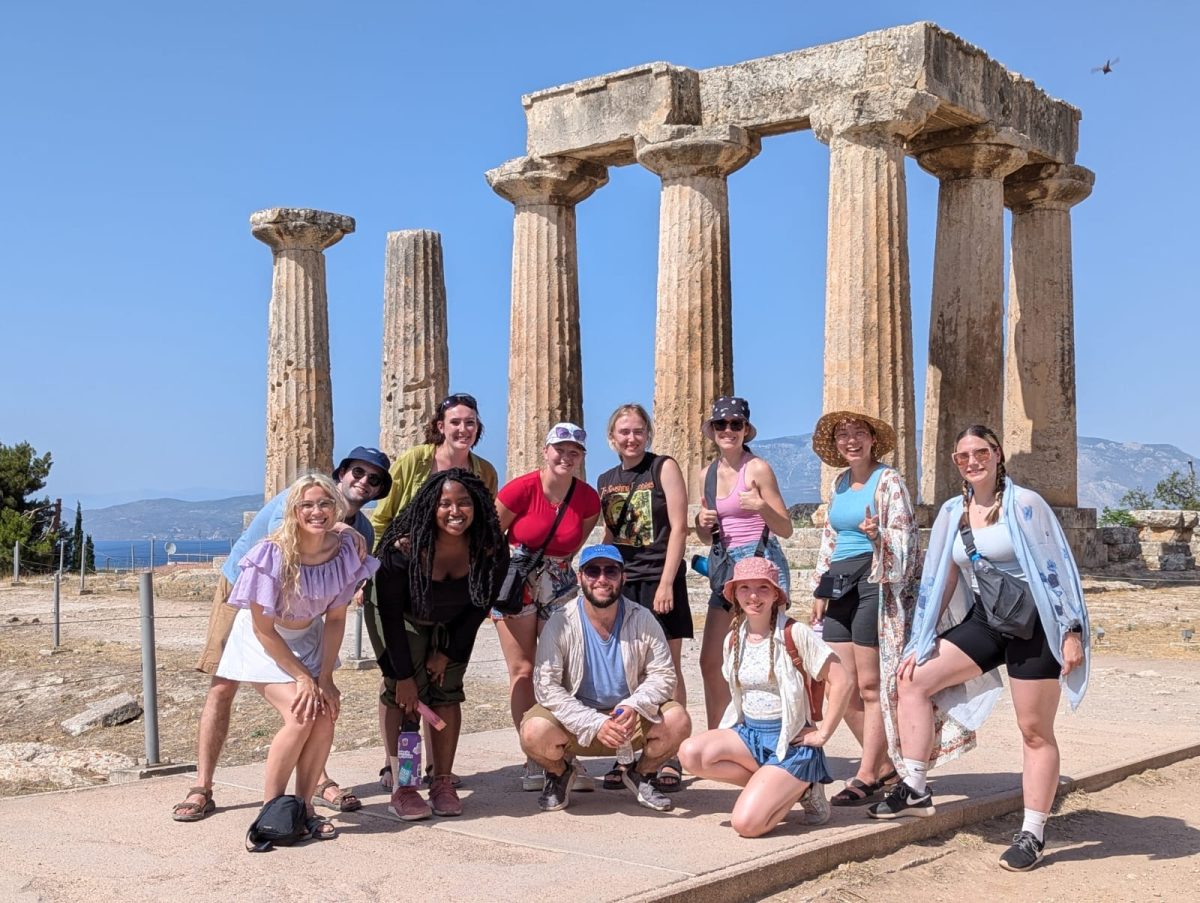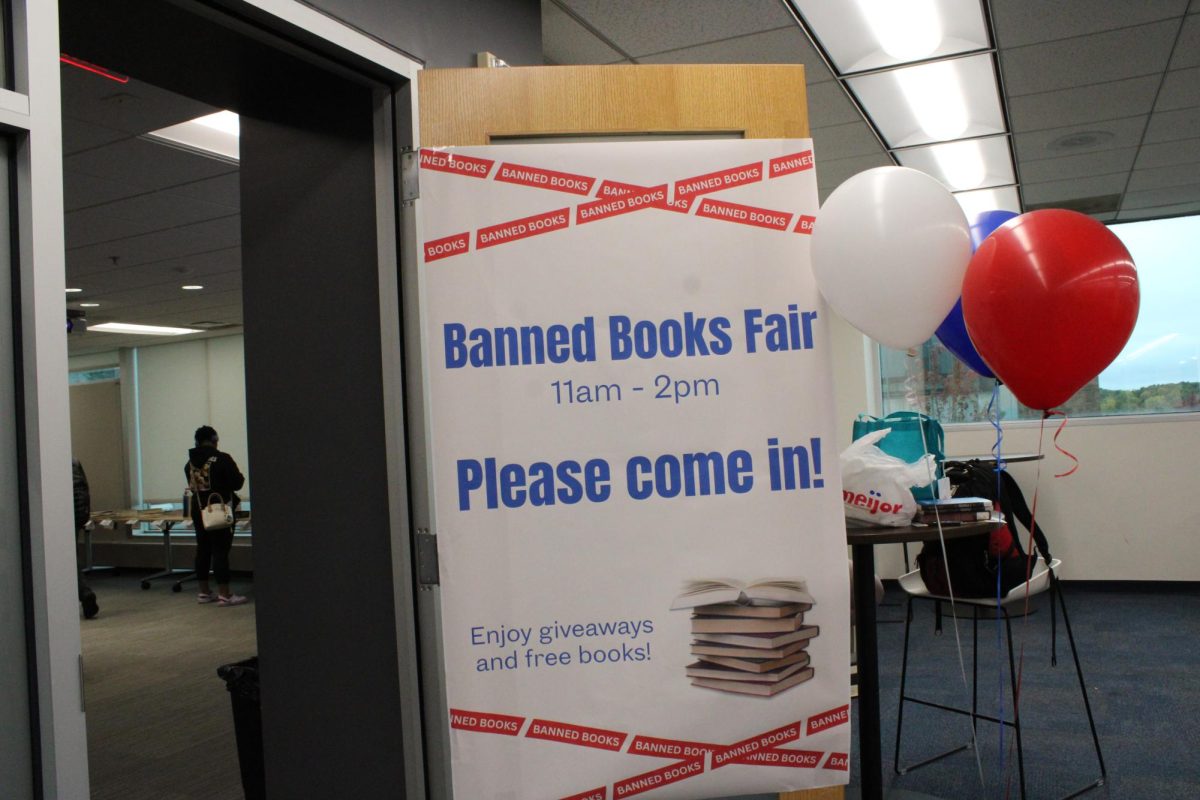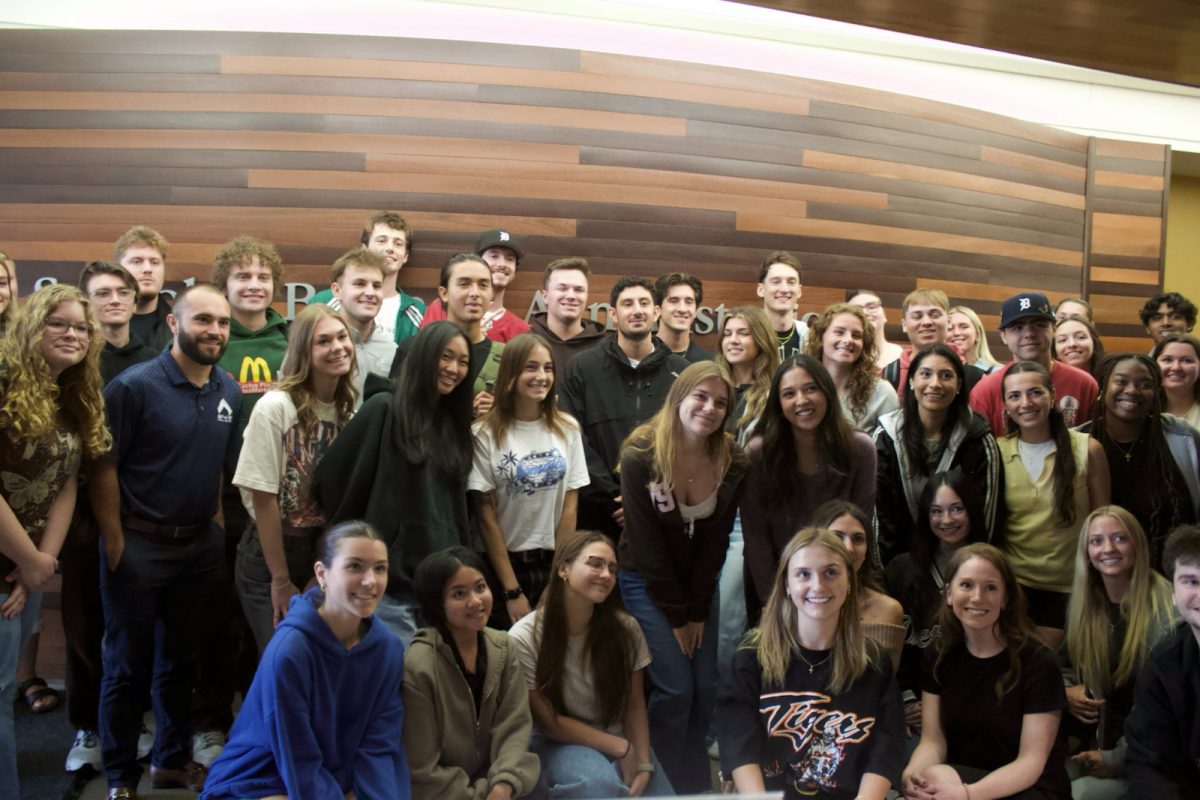Grizz Recovery’s team made a rainbow out of the Oakland University’s campus and students for their first Color Walk event. The addiction and substance abuse recovery group took on the new initiative to reduce the stigma of sobriety and have substance-free fun.
With only two years since its conception, Grizz Recovery — an initiative of the counseling center — has seen an increase in its membership as more students decide to live in sobriety at OU.
“We’ve had an exponential growth this year, just a few weeks into the semester, and we’ve already had a handful of new members that are regularly attending our meetings,” Alaina Humphreys, Grizz Recovery student ambassador, said. “As the stigma is decreasing, the awareness is increasing, and the word is getting around campus, we’re seeing these students flood in, a few, every single week so far.”
On Oct. 11, multiple stations with resources and fabric paint made for a trail on campus where students and community members could learn about the resources to help with recovery. Student organizations, campus offices and community partners were stationed at each stop of the color walk.
“The idea here is to have a place on campus that can kind of be the safe place for students to congregate, hang out, have events like this,” David Schwartz, director of the OU Counseling Center, said. “We can do alternative Spring Break mocktails, you know, sober events, so that they can still have the college experience, have fun and also have the support of the community, of each other.”
With more students attending their events, Sarah Super, coordinator of Grizz Recovery, explained that the attitude towards sobriety has improved with the years.
“I remember in my first AA meeting I was like, ‘what if I know somebody?’” Super said. “ I think people are more proud of it now. I don’t see a lot of new students saying, ‘I’ll join, but I don’t want anyone to know,’ because we are a community of like minded people, who have come together and we’re loud and proud about it.”
Schwartz highlighted the importance of allyship not only at the event but also for students starting recovery. Instead of treating addiction as a character flaw or moral failing, we should understand it as a medical issue, he explained. The results are more resources and efforts in supporting recovery, rather than making it a punitive moment.
“I recently learned about the angel program that Michigan State Police is doing where somebody who is desiring recovery — or they’re using drugs and they want to stop — can take their drugs into a Michigan State Police officer’s office and they can turn over their drugs with no penalty,” Humphreys said. “Also, they will be set up with some resources to get them into treatment.”
Following a period of professionalization, Grizz Recovery has been preparing to grow alongside other university recovery programs and with the local community.
“We’re registered with the Association of Recovery and Higher Education,” Humphreys said. “Maybe in the future we have a summit where we can bring these schools together. Big schools like University of Michigan, Michigan State University, Western all have collegiate recovery programs. I’d love to get us all in the same place to discuss how we can make change at a state level.”
If you or anyone you know is ready to enter recovery and try sobriety, you can reach out to Grizz Recovery at [email protected].



